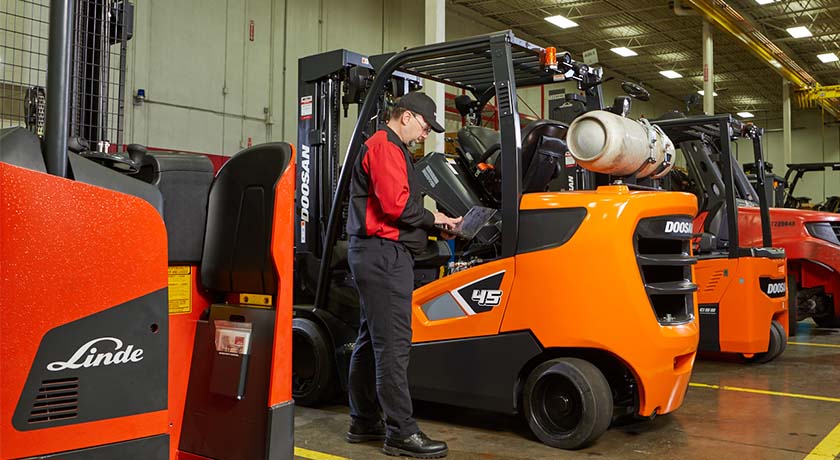
- Share
4 Reasons Why a Scheduled Maintenance Program Matters
For businesses like yours, guaranteeing that a forklift fleet is functioning smoothly is vital to maintaining a company’s productivity and efficiency levels. But choosing the right forklift based on the company’s operations is not enough. A carefully chosen service plan is also necessary to prevent costly downtime and unnecessary repair bills that can affect your bottom line.
Selecting the appropriate service plan for your forklifts shouldn’t be taken lightly. Why? Because a maintenance plan that does not encompass your truck’s operating requirements may not warn you of concerns in a timely manner. Furthermore, failing to keep a scheduled maintenance program for your trucks may result in some serious risks that you would definitely prefer to avoid.
These are the main issues that a lift truck with poor maintenance practices may cause, and why a schedule maintenance program for your forklifts truly matters.
1. Downtime
Once a forklift breaks down it takes time to get it repaired. Depending on the damage the truck suffered, the process to acquire necessary parts, often times from overseas, can take longer than expected, and idle equipment translates into lost revenue. Regular maintenance by trained technicians should help minimize the downtime.
2. Reduced lifetime
While scheduled maintenance programs may help you extend the life of your forklift, irregular inspection and/or poor maintenance service can surely reduce your forklift’s lifecycle, compromising your ROI.
3. Costly Maintenance Expenses
A damaged forklift not only affects productivity, but it also represents an unexpected expense which requires immediate action and could turn into “after hours” labor rates. Meanwhile, keeping a unit on scheduled maintenance can help you detect situations before they turn into a major problem. They can also alert you to items still covered under warranty that need attention before it expires. You can invest in a total maintenance and repair package that offers comprehensive service which is sometimes payable on a monthly basis.
4. Legal Concerns
Ensuring that your forklift is up to OSHA standards is not only a matter of preventing downtime and costly repairs, but there are also safety and environmental regulations to consider as well. According to OSHA safety requirements, worn components such as forks, chains and tires should get immediate attention and replacement. In addition, engine and fuel systems need to comply with federal emission regulations.We recommend that you have a planned maintenance program for all equipment you own or operate – forklifts, aerial lifts, skids steers, industrial cleaning equipment, personnel carriers, construction equipment, etc. – in order to avoid unnecessary disruptions. Contact us to learn more.

